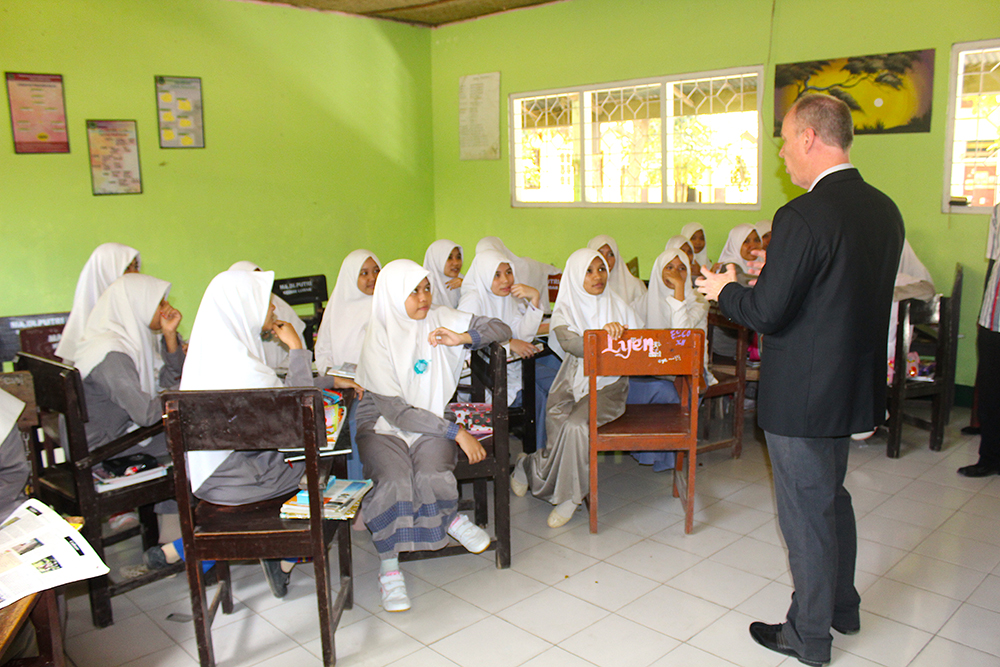
Promoting mathematics engagement and learning opportunities for disadvantaged communities in West Nusa Tenggara, Indonesia (2014–2017)
Australian Department of Foreign Affairs and Trade, Government Partnerships for Development (GPFD)
Professor Tom Lowrie
This four-year project, funded by the Australian Department of Foreign Affairs and Trade (DFAT) Government Partnerships for Development (GPFD) program, aimed to improve the quality of teaching and learning in mathematics classrooms in West Nusa Tenggara (NTB), Indonesia. Its focus was on “promoting opportunities for all”.
SERC worked with teachers to develop learning resources and increase pedagogical content knowledge. We also helped design learning activities to inspire Grades 7–9 students, particularly girls, to engage actively with mathematics through their personal lives, further education, and career aspirations. Project activities included: close collaboration with local government, education institutions, and teachers; module development and implementation in classrooms; and, a professional development program in Australia for leading teachers.
At the conclusion the project, we had established a group of leading teachers, representing all districts, to continue professional development practices in NTB. These teachers have a set of artefacts to use in the classroom, helping to engage students more in mathematics.
Background information
West Nusa Tenggara (NTB) is the second most disadvantaged province in Indonesia, with female students the most vulnerable. Fewer girls continue with secondary education, and much lower proportions aspire to engage in Science, Technology, Engineering and Mathematics (STEM)-related disciplines.
This project targeted students and their teachers. It aimed to empower teachers through capacity building of pedagogical content knowledge and the development of effective learning resources. As teachers became empowered in the classroom and within their community, they were able to increase students’, particularly female students’, engagement with mathematics.
Objectives
The project had three main objectives:
- To increase the engagement of girls in mathematics learning and enhance opportunities for female teachers to take leadership roles;
- Enhance teachers’ capacity to autonomously develop quality teaching materials, with rich learning tasks that promote student engagement; and
- Produce enduring mathematics artefacts, which include a learning framework manuscript, complementary activities/resource books, a teacher professional development package for Working Groups, and best-practice videos.
SERC worked closely with our Indonesian partners and local teachers throughout the project to ensure that these objectives were met.
Method
Our team administered surveys to teachers and students, and reviewed video content on teacher practice in Indonesia, to gather baseline data on local attitudes and contextual needs. Then we worked with local government, education institutions and teachers to develop teaching modules, encourage female teachers to be leaders within their schools and community, and provide female students with new opportunities to engage with mathematics.
Our collaborative approach with teachers allowed us to design contextualised lessons and teaching units that captured best-practice techniques for engaging students in the mathematics curriculum. Most activities for this project were conducted in Indonesia. Forty teachers were selected participate in a month-long professional development program in Australia.
